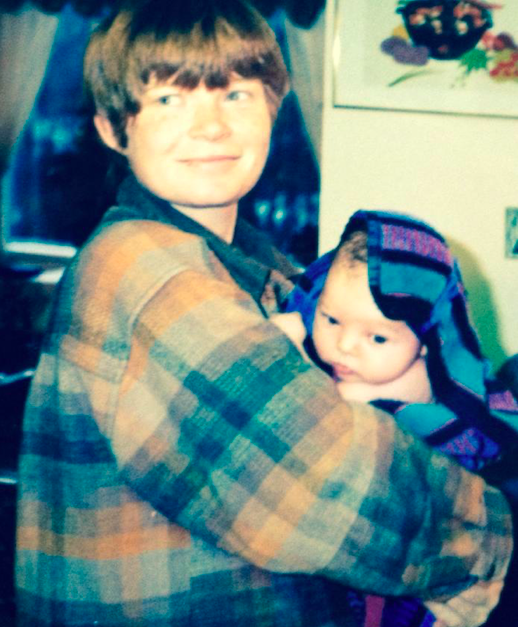My children have a brilliant way of getting me to think about things with attention and an open mind.
It is the only way to keep up with their never-ending questions. The other day, my daughter asked me if I thought all love was the same, and I raised my eyebrows and responded with my classic line, “In what sense”?
The meaning and the purpose of love permeates so much of our lives that sometimes I feel the word “love” cannot possibly encompass what we need it to. As I began to break down and dissect love for my daughter, I was hit with the heft of its meaning and nuance.
We do an excellent job of telling each other how our love is like another type of love, or not the same as this kind of love, and hope that that explains how we feel. We compare and contrast the love we have for our friends and family to the love we are searching for in another, and then are often disappointed by what we call “romantic love.”
My thinking mind always believes it knows best; therefore, I began to outline for my daughter Plato’s philosophical treatise on love. I explained Plato’s Symposium and how the ancient Greek playwright Aristophanes paid tribute to the classic belief that love is realized in the desire and quest to find our other half. Based on the number of stories with this theme across cultures and throughout history, it would seem that this belief is one that human nature is drawn to. However, Plato offers another perspective through a character named Diotima who describes love as a desire for something beyond the union of only two people, because love is made manifest in the pursuit to give birth to beauty, both in body and mind; that love is greater than an attachment to another, even to many others.
I love to play with ideas, but my daughter seemed to want a definitive answer.
The idea that true love must grow outside the confines of attachment is popular, and I felt I could make some headway using this view to develop my response. I shared the line from the poet Kahlil Gibran,
“Love possesses not, nor would it be possessed; For love is sufficient unto love.”
To offer some balance, I went on to describe how the most transparent love I had ever experienced flooded my being the first time I became a mother, and that at the root of my love for my children and my close friends is a fondness that attaches me to these people. It is not a need to possess, yet, it is an impressive attachment, akin to devotion. There is no love without the desire to protect and support the people you love; a desire to see the people you love thriving, and laughing, and loving—love begets love. Nevertheless, often when the word love is used, it is infused with expectations and self-satisfaction. It is complex.
My inability to nail down the nature of love for my daughter was causing me to feel like a bad mother. It is my job to equip my children with the tools needed to flourish in life and here I was unable to guide her in the realm of love. I kept coming back to the notion that love itself requires nothing. The hard part was the actual human variable.
People often require a great deal, and our needs and desires around love can be extraordinary, and beautiful, and powerful, and demanding, and destructive, and painful. To give love, to simply let it be there as an offering, seems so easy and straightforward, and yet we are stingy with love. I have yearned for love from other people, grown weary waiting, and walked away. I have felt trapped by the prospect of loving someone because I believed to love them would require me to lose myself, and thus eventually them as well. I have been in situations where I have been told over and over that I am loved and yet I have failed to feel it was true.
Fear, insecurity, and self-composed assumptions build walls and wage war against love. This fundamental and pregnant idea has become a battlefield and a commodity, and people are suffering. Love is not a goal to be achieved; love is an experience, a continuous act of beauty, curiosity, and connectivity.
This time, my daughter raised her eyebrows and said, “That’s definitely not the whole story.”
Our culture is suffused with images of sexual desire and stories of love found, lost, butchered, and redeemed because even when we understand the nature of love, the expression leaves us confused and muddled. We want union and sexual rapture, and we want security and happiness, and all these things get tied to the word love. We search high and low for love so that we can finally feel complete. Some people regularly fall in and out of love, with great drama and emotion, while others live lives devoid of love no matter what they do. The industry around securing love makes my head spin.
I am the first to agree that articles and discussion around our understanding of love have the potential to be helpful, both individually and as a society; however, the industry built upon our desire to have love is also built on our fears. How to look and behave to attract and then keep love, how to say the right things at the right time, how to keep love alive, and how to love yourself the right way because all love begins with you. The advice concerning how to improve ourselves is endless, and it often depends on a need to be loved, by others and ourselves—and we are apparently failing constantly.
I was determined not to fail my daughter, so I attempted one more time to use the power of my logical mind to shed some light on the matter. I dove back into the ancient Greeks and began summarizing the eight different forms of love so that I could wow her with my theory that there are actually seven different expressions of love and only one real foundational understanding of the word. I was standing in my pulpit expounding on the concept of “Agape,” and how it is often related to, and defined as, spiritual love, though for me it is the cornerstone of love—universal love that begins with the self. It is unconditional, and free from desires or expectations.
My speech felt hollow. I paused and stared at the ceiling, my hands held in front of me, waiting to emphasize my next thought. And then I simply looked at my daughter. She was smiling with her chin resting in her palm as she leaned on the kitchen counter. The crinkles in the corners of her eyes looked like love to me. The laughter that erupts out of my students during loud discussions in English class leaves me warmed with love for them. Sitting in a dark pub eating greasy bacon and eggs on a Saturday morning with friends allows me to feel safe in their love. Sitting down on the sidewalk at 3 a.m. with a stranger because they offered me a seat reminds me that love is simple and only takes a moment. So I envision my daughter supported by the threads of love that wind and weave us together.
Many expressions of love involve cravings, yearnings, assumptions, opinions, ideals, and perceptions. And sitting there, talking with my daughter, made it clear that I did not need to explain and expound anymore because a selfless caring for the happiness of others is not something that can be broken down into multiple definitions and philosophical categories. We would continue to discuss it simply for the joy of discussion.
Even without fancy titles and treatise, for me, all love is the same. Any bond that I desire with another being shines brighter if I open my heart without any expectations, or need for self-satisfaction, “for love is sufficient unto love,” and failure only leaves me loving more.
~







Read 1 comment and reply